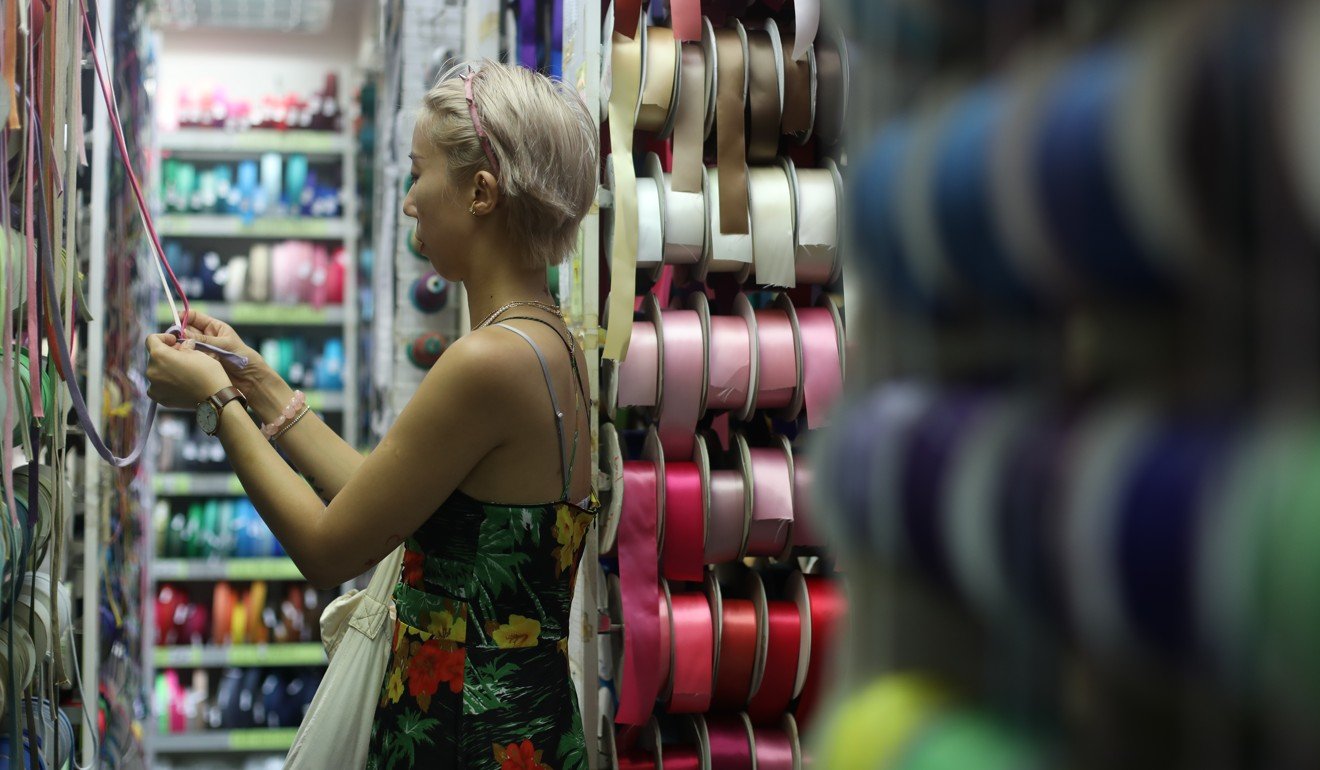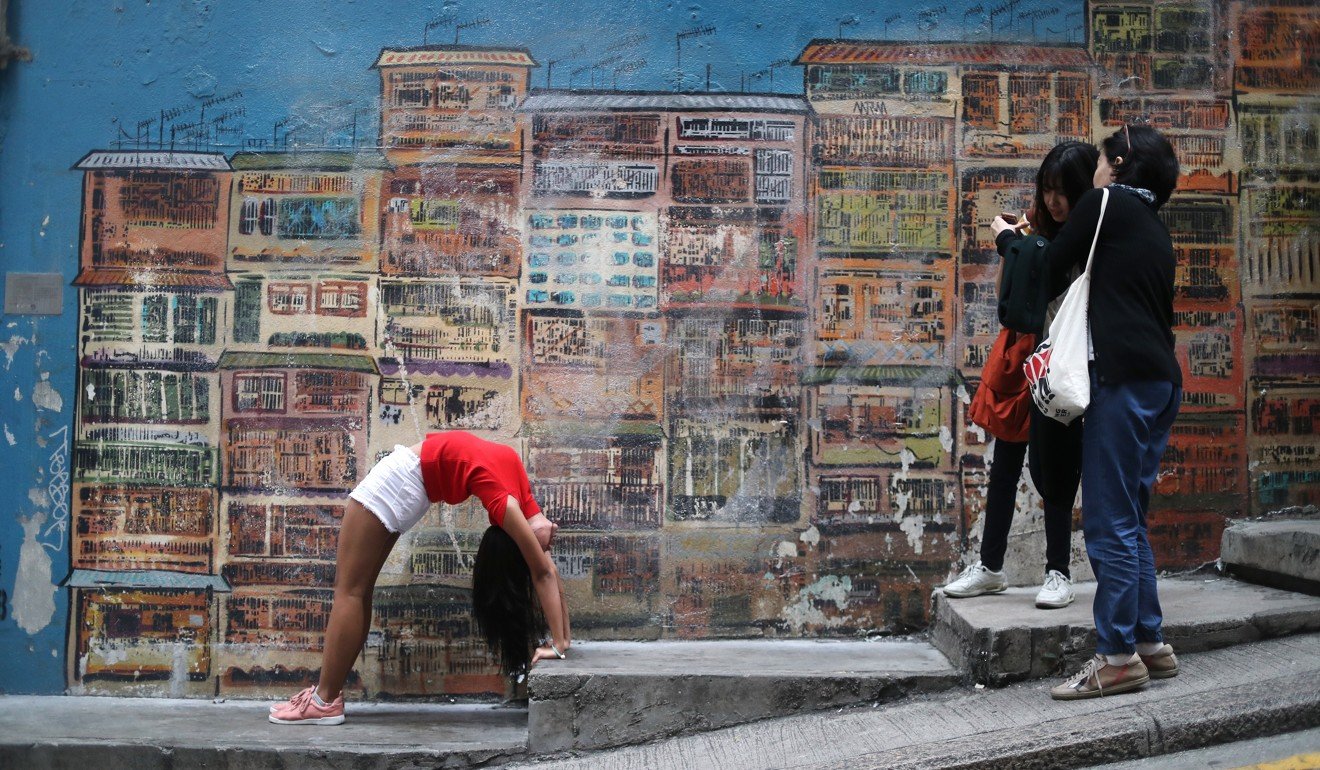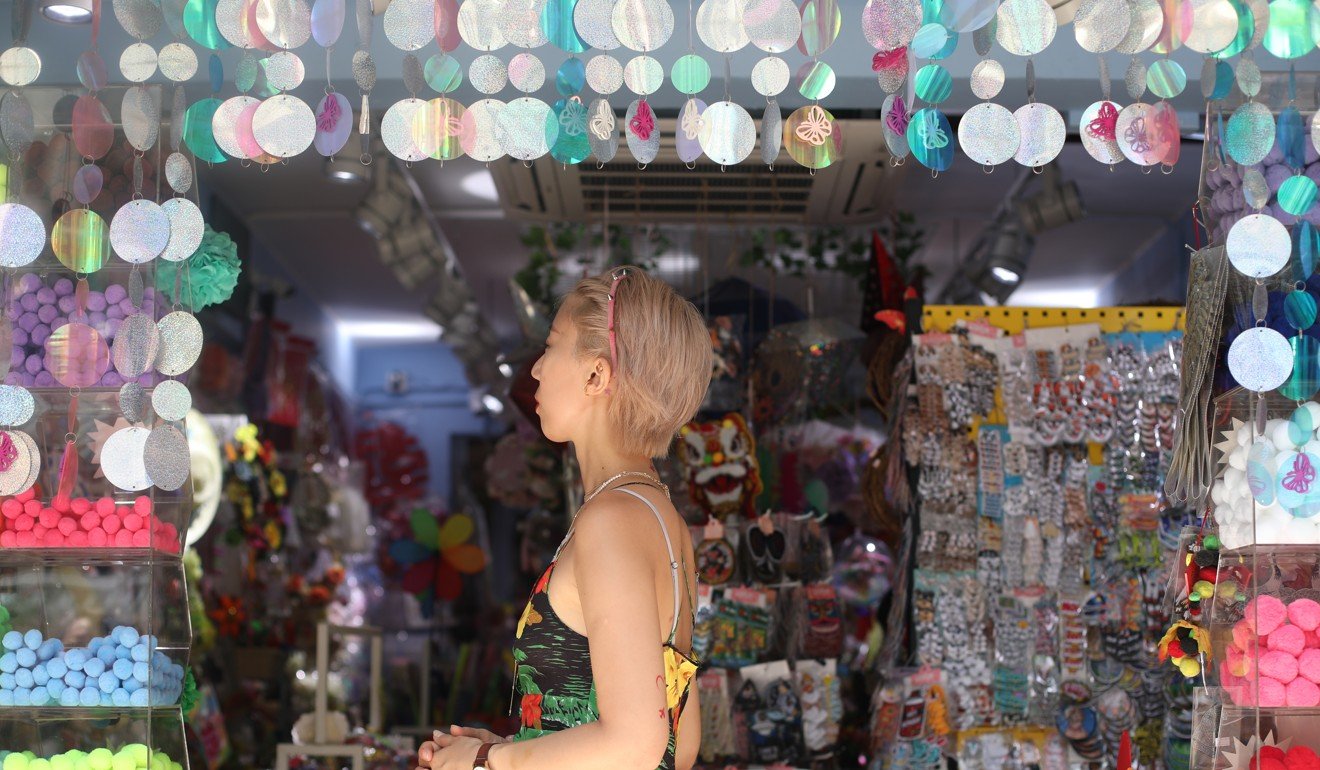Unlicensed tours of Hong Kong neighbourhoods are booming on platforms like Airbnb but operators are wary of the legal risks they run
- Over 200 activities are offered on Airbnb Experiences, which launched in 2017, but many who run them are unregulated
- Obstacles to getting licences remain and tourism industry is reluctant to make things easier for newcomers

Hosting sightseeing tours through Airbnb to show visitors Hong Kong’s hidden gems is a welcome source of revenue for tour organisers like Hayley, as well as a fun way of making new friends. But there are also legal risks in operating such activities without a licence.
Rather than bring visitors to the city’s better-known tourist attractions, the 35-year-old shares stories with them about the rise and fall of Hong Kong’s fashion manufacturing industry in the textile wholesale hub of Sham Shui Po, an old working-class neighbourhood in Kowloon.
“A lot of interesting things can be dug out here. It’s like doing a treasure hunt,” said Hayley, a former fashion buyer who declined to give her full name.
“I hope more people can learn about the neighbourhood through this tour, not just Hong Kong residents but foreign visitors too. So they can see part of Hong Kong’s authentic side.”
Airbnb Experiences – a platform that allows locals to organise activities for guests to explore their town or city – was launched in Hong Kong in 2017, as tourism off the beaten path became popular among young travellers.
Over 200 activities are offered locally on the site, with about half of them sightseeing tours, according to a Post review.
The Post spoke to 15 hosts, 12 of whom did not have tour guide and travel agent’s licences as required by local regulations; more than half those spoken to had little knowledge of such licences.
Under the Travel Agents Ordinance, people operating businesses serving mainland and overseas visitors without a travel agent’s licence can face a fine of up to HK$100,000 (US$12,830) and two years in jail if convicted, although, due to a legal loophole, companies employing unlicensed tour guides are more likely to be penalised than the individuals themselves.
Hayley, who launched activities such as a fashion tour and a photo shoot walk in the past year, said she had considered the legal risks. She thought she did not need a licence as long as her sightseeing tours did not provide transport and accommodation.

She admitted there could still be some dangers, so she has signed up to do a tour guide training programme; she had already taken the risk of starting the activities, priced between HK$290 to HK$750, before getting her licences.
“I would have regretted it more if I hadn’t gone ahead with it because of the worries,” she said, fearing the market would be saturated if she had started later.
It is not the first time users of the sharing economy player Airbnb have faced legal risks in Hong Kong. Hosts on its home-sharing platform have been under threat because of the city’s restricted hotel and guest house accommodation laws.
According to Airbnb, Experiences hosts are responsible for complying with local regulations.
Its website asks potential hosts of guided tours to consider getting a travel agent licence and tour guide pass, showing that other Asian countries such as Singapore and South Korea have similar regulations in place for guided tours.

But obtaining the two required licences is far from simple for Hong Kong hosts who run their tours on a part-time basis.
A licensed travel agent has to fulfil requirements such as providing a bank deposit surety to the Travel Industry Council to become a member, and a tour guide has to pass examinations as well as obtaining a first aid certificate.
Tiffany, who had organised public housing estate tours through the platform, stopped running them in late May after learning about the legal dangers from an acquaintance.
The 26-year-old designer, who preferred not to give her full name, said she had not paid attention to the law and there was no vetting for licence requirements when she applied through the Airbnb platform.

“The laws should be updated to support those who run amateur tours,” she said, adding that authorities could issue them with qualifications after they had attended some lessons.
While Airbnb Experiences hosts called for more relaxed regulations, tourism lawmaker Yiu Si-wing and the council’s executive director Alice Chan Cheung Lok-yee insisted the existing requirements were crucial to safeguard the interests of visitors.
Yiu said licensed tour guides were trained to handle urgent situations.
He said the laws were clear that business operators introducing tourists to local places of interest would need a travel agent licence.
The legislator said the licence exemption granted to operators of tourist attractions that did not offer guided tours could not apply to Airbnb Experiences hosts.
But he noted the Travel Agents Registry (TAR) faced challenges in law enforcement because it had no power to conduct inspections of unlicensed agencies and could only pass complaints to the police.
The council, which issues tour guide licences, cannot charge unlicensed individuals.
“It is a loophole,” Yiu said.
He said the looming new tourism watchdog the Travel Industry Authority would have greater law enforcement rights.
Virginia Chan, founder of tour firm Humid with a Chance of Fishballs Tours, said she had sometimes found it hard to compete with unlicensed operators on the platform, as some of them set low prices for their tours. She said her company, because it hires legitimate guides and has obtained a travel agent’s licence, had higher overheads.
“I don’t think the government has done enough to help protect us,” she said.
She said if the regulatory body had to relax the rules, full-time operators should be given the same treatment on a more level playing field.
In a reply to the Post, the Commerce and Economic Development Bureau said the Travel Industry Ordinance passed last year would help step up regulation and cater for travel agents’ different modes of operation to allow the industry to keep pace with the times.
From June 2018 to May 2019, the TAR received 18 complaints of suspected unlicensed travel agent business related to inbound travelling, it said.